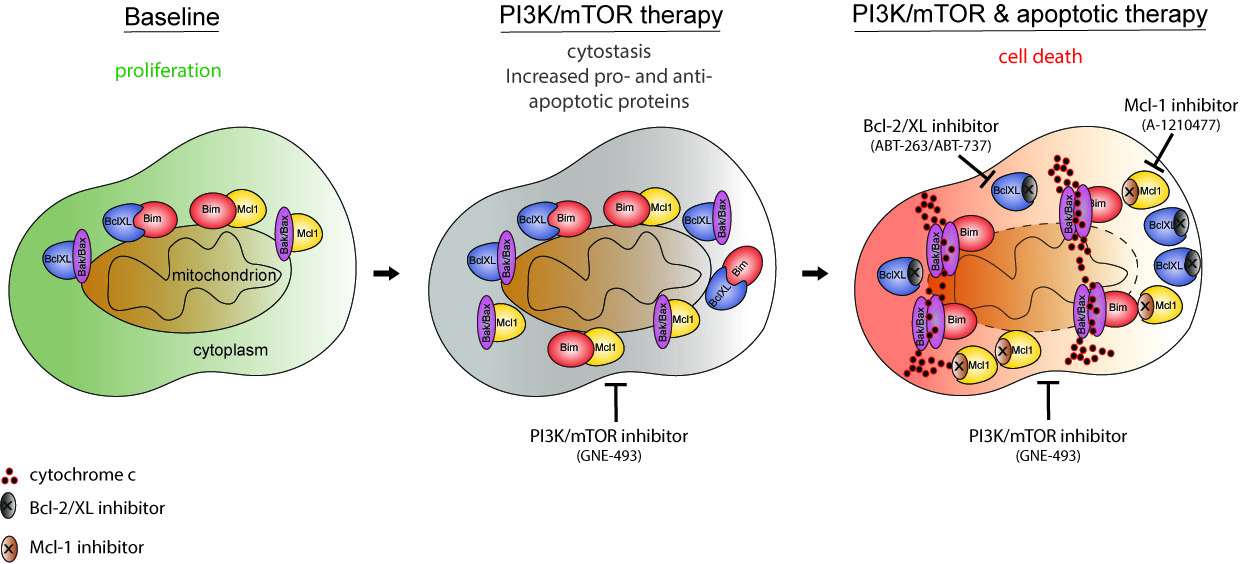
High-grade serous ovarian cancers (HGS-OvCa) frequently develop chemotherapy resistance; therefore, identification of novel therapies for the treatment of chemotherapy-resistant tumors remains an unmet need. In a recent study published in NatureCommunications, the Brugge lab carried out a systematic proteomic profiling analysis of responses to PI3K/mTOR inhibition in 14 HGS-OvCa patient-derived xenografts (PDX) to identify vulnerabilities of chemotherapy-resistant ovarian cancer. Findings from these studies showed that PI3K/mTOR inhibition strongly promotes apoptotic priming which sensitizes cells to inhibition of BCL2 family anti-apoptotic proteins. Combined inhibition of the PI3K/AKT/mTOR axis and BCL-2/BCL-XL induces effective tumor cell death in vitro and in orthotopic mouse xenografts in vivo. By performing an in-depth analysis of the BCL-2 family of apoptotic regulators using selective inhibitors and computational modeling, the Brugge lab identified BIM, BCL-XL and MCL-1 as critical players and biomarkers in ovarian cancer cell survival. This study presents a novel systematic approach to comprehensively investigate apoptotic priming mechanisms and identify cell death vulnerabilities in HGS-OvCa.